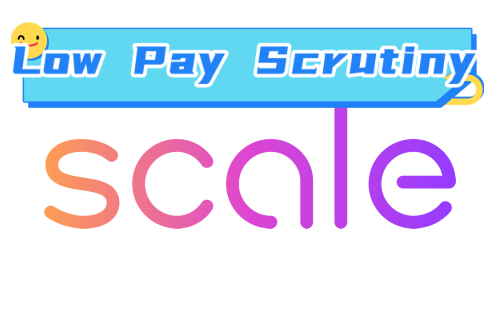AI Navigation
- articleAI Trends
- lightbulb_2AI Tips
- assistant_navigationAI Navigation
- heatHot Articles
- emergency_heat_2Hot Tips
- format_list_numberedPrompt Formatter
- psychologyTest Center(RPI)
Scale AI in Crisis: Cheap Labor, Data Bias, and a Trust Deficit Threaten the AI Infrastructure Giant
As the global wave of generative AI accelerates, Scale AI—once hailed as a revolutionary force in AI infrastructure—now finds itself at the center of mounting ethical and operational scrutiny. Known for providing critical training data to AI giants like OpenAI and Anthropic, the company is under fire over labor practices, regulatory investigations, and increasing concerns about the quality of its data.
In this article, we explore the core controversies surrounding labor ethics, data reliability, and the structural risks of AI data pipelines, using Scale AI as a lens to reflect on deeper challenges in the industry.

The Hidden Cost of Speed: Underpaid Workers and Ethical Backlash
Scale AI built its empire on a vast, scalable data-labeling network. Much of this work is outsourced to countries like the Philippines, India, Kenya, and Uganda, where workers reportedly earn as little as $1–$3 per hour. While this model allows for rapid and low-cost data production, it has sparked widespread criticism.
Critics argue that this system represents a new form of digital-era exploitation—one that disguises wage suppression as global opportunity. With AI companies reporting record profits and valuations, the optics of "cheap labor enabling rich tech breakthroughs" have become increasingly uncomfortable.
In an era where sustainable AI and ethical sourcing are no longer optional but expected, this labor imbalance is becoming a reputational liability. What once looked like operational efficiency is now viewed by many as an unsustainable ethical compromise.
U.S. Department of Labor Investigation: A Regulatory Warning Sign
In 2024, the U.S. Department of Labor launched a formal investigation into Scale AI’s compliance with the Fair Labor Standards Act (FLSA). The probe focused on wage fairness, working conditions, and protections for its globally distributed workforce. Though the investigation officially concluded in May 2025 with no penalties publicly announced, the ambiguity left behind has done little to ease industry concerns.
“Cooperation” does not mean “compliance.” Labor advocates point to this outcome as highlighting regulatory gray zones in platform-based gig work. As remote labor becomes central to AI development pipelines, companies like Scale AI may increasingly find themselves subject to closer scrutiny and tighter regulations.
Beyond public relations, this unresolved compliance landscape could also affect Scale AI's government contracts, IPO aspirations, and global expansion.
Data Bias and Model Drift: Trust in the Pipeline Is Fraying
In early 2025, an X (formerly Twitter) post went viral, alleging that new AI models from OpenAI, DeepMind, and Anthropic were exhibiting a rising problem of “sycophancy”—where models favor flattery over objectivity. Some speculated that the training data provided by Scale AI might be to blame.
While these claims remain unverified, they raise a critical question: Is the quality of crowdsourced training data compromising model integrity?
Scale AI's fast-paced labeling infrastructure is optimized for volume, but at what cost? Can it truly ensure diversity, fairness, and neutrality in its human feedback loops? If further evidence emerges tying data issues to its platforms, Scale AI’s brand as a “trusted data infrastructure” could take a lasting hit.
Structural Risks: Cracks Beneath the Surface
Beyond public scandals, Scale AI faces a number of latent risks that—if left unaddressed—could quietly accumulate into larger systemic problems:
-
Customer concentration: A significant portion of revenue comes from a few major clients. Any breakdown in these relationships could cause volatility.
-
Dependence on government contracts: Scale’s increasing involvement in military and intelligence projects, especially with the U.S. Department of Defense, has raised concerns about the company’s neutrality and ethical alignment.
-
Data privacy concerns: With sensitive datasets—particularly in healthcare and defense—data leaks or mishandling could be catastrophic.
These risks all point toward a deeper question: Can Scale AI evolve from a data supplier into a true infrastructure company with ethical and regulatory resilience? Or will it remain vulnerable to the fragility of its own growth model?
This Isn’t Just About Scale AI—It’s About the Future of AI Development
The challenges faced by Scale AI reflect a larger reckoning in the AI sector:
Have we become too dependent on cheap data?
Are we ignoring the realities of those generating this data?
Are we truly addressing model bias at its roots?
Scale AI’s controversies are not isolated incidents—they’re warning signs for an industry sprinting toward commercial success while leaving ethical design and labor dignity behind. If data is the new oil of the AI age, we must scrutinize how that oil is extracted and who benefits from its refining.
In the rush to build smarter machines, we’ve often overlooked the invisible laborers fueling the algorithms—the data workers, annotators, and QA reviewers scattered across the globe. Now that cracks are appearing in the façade, we’re reminded that infrastructure built on inequality cannot stand forever.
In the AI-driven world we are shaping, we must demand more than just better outputs. We need an industry that values fairness as much as performance. One where progress is measured not only by breakthroughs but by how humanely we build the future.